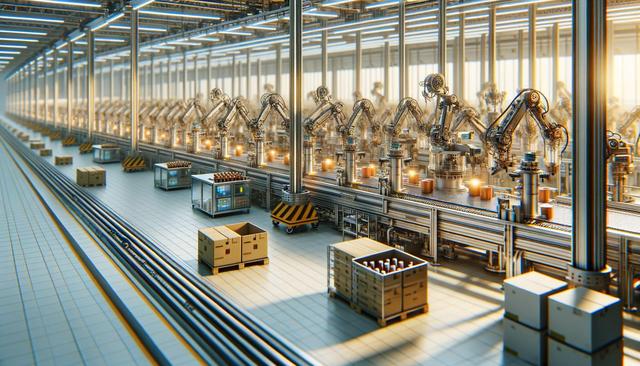Understanding the Role of Automated Assembly Line Manufacturers
Automated assembly line manufacturers are essential players in modern industrial production. These companies create integrated systems that help businesses streamline workflows, reduce manual labor, and enhance overall operational efficiency. Their automated solutions are particularly valuable in sectors such as electronics, automotive, consumer goods, and pharmaceuticals, where consistency and speed are critical. By implementing advanced robotics, programmable logic controllers (PLCs), and real-time monitoring systems, these manufacturers enable businesses to produce large volumes of products with reduced error margins and minimized downtime.
Choosing the right automated assembly line manufacturer involves understanding the scope of their expertise. Some manufacturers specialize in custom systems for niche industries, while others offer modular solutions adaptable across multiple sectors. Evaluating their technical capabilities, industry experience, and support infrastructure is essential in determining whether their systems align with your production goals. The ideal partner will offer scalable solutions that grow with your business and adapt to evolving market demands.
Key Technologies Used in Automated Assembly Lines
Modern automated assembly lines incorporate a range of technologies designed to optimize production processes. These systems often include:
- Robotic arms for precise material handling and assembly tasks
- Automated guided vehicles (AGVs) for internal logistics
- Vision systems for quality control and component recognition
- Industrial IoT sensors for real-time data collection and performance tracking
- Software platforms for process integration and analytics
Each technology plays a specific role in enhancing accuracy and maintaining consistent output. For example, vision systems ensure every component is correctly positioned before assembly, reducing the chance of defects. Likewise, the use of IoT devices allows for proactive maintenance and improved energy efficiency. By understanding these technologies, businesses can better assess the capabilities of potential manufacturers and ensure their systems align with technical requirements.
Factors to Consider When Selecting a Manufacturer
When evaluating automated assembly line manufacturers, several factors should be taken into account to ensure long-term success. Key considerations include:
- Customization options: Can the manufacturer tailor the system to your specific needs?
- Integration support: How well does the system integrate with existing equipment and software?
- After-sales service: What type of maintenance and technical support do they offer?
- Production capacity: Can the system handle current and projected future output?
- Compliance and safety: Does the manufacturer meet relevant industry standards and safety regulations?
These criteria help ensure that the selected partner is not only capable of delivering a functional system but also committed to supporting it throughout its operational lifespan. A thorough vetting process reduces the risk of costly disruptions and facilitates smoother implementation.
Benefits of Automating Your Assembly Line
Investing in automated assembly lines offers a variety of benefits that go beyond labor savings. These include:
- Improved product consistency and quality control
- Faster production cycles and reduced lead times
- Lower operational costs over the long term
- Scalability to meet increasing demand
- Enhanced workplace safety by reducing manual handling
Such benefits make automation an attractive option for companies seeking to remain competitive in a global market. While the initial investment in automation can be significant, the long-term return on investment often justifies the expense. Moreover, automation supports sustainability initiatives by enabling more efficient use of materials and energy.
Working with the Right Partner for Long-Term Success
Finding the right automated assembly line manufacturer involves more than just comparing prices or product specifications. A reliable partner will take the time to understand your production challenges and offer tailored solutions that align with your strategic objectives. This includes providing training for your workforce, ongoing technical support, and system upgrades as technologies evolve.
Effective collaboration can lead to long-term partnerships that drive innovation and continuous improvement. Many manufacturers also offer simulation tools and prototyping services, allowing businesses to test different configurations before full-scale deployment. This minimizes risk and ensures that the system performs as expected under real-world conditions.
Ultimately, the success of your automation initiative depends on choosing a manufacturer that combines technical expertise with a commitment to customer service. Look for companies with a proven track record, positive client testimonials, and the capability to support your growth over time.
Conclusion: Making Informed Decisions for Sustainable Production
For businesses aiming to enhance efficiency, maintain product quality, and scale operations, partnering with an experienced automated assembly line manufacturer is a strategic move. By focusing on key factors such as technology integration, customization, support services, and long-term compatibility, decision-makers can select a manufacturing partner that aligns with both current needs and future ambitions. Taking the time to evaluate potential partners thoroughly will lead to more resilient and productive operations in the long run.




Leave a Reply